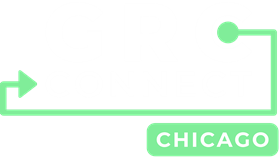We are delighted to confirm that compliance consultant, Patrick Henz will speak at PrivSec & GRC Connect Chicago, this month.

Taking place April 16 and 17 at Crowne Plaza Chicago West Loop, PrivSec & GRC Connect Chicago provides a platform for organizations to address the cumulative nature of risk.
PrivSec & GRC Connect Chicago’s comprehensive agenda is led by subject matter experts, business chiefs and industry leaders, giving attendees a deep-dive into challenges and solutions on the rapidly evolving GRC landscape.
Event speaker, Patrick Henz is Special Adviser for Compliance Latin America at Mitsubishi Heavy Industries Americas. He will be attending PrivSec & GRC Connect Chicago to debate ethics within AI application.
Learn more about Patrick and his discussion topic in the exclusive Q&A below:
Could you outline your career so far?
Working at Siemens Mesoamerica Corporate Information Office (CIO), I had the pleasure in 2007 of being responsible for implementing the new Compliance system, including tools and processes for Mexico, but also Central America and the Caribbean.
I stayed in the Compliance department and later became the Compliance Officer for the businesses Industry, Infrastructure & Cities. Six years later I changed to Siemens Industry in the Atlanta area, and in 2015 joined a leading engineering and plant construction company.
This was firstly for the role as Regional Compliance Officer for the Americas, then later with responsibility for Governance, Risk & Compliance, which includes topics like Business Resilience, Community Engagement and ESG reporting.
Being part of the MHI Group, it is pleasure to serve as the MHI Americas Special Adviser for Compliance Latin America, and so I stay up-to-date and in contact with this fascinating region.
What are the main areas that AI developers need to address in order to enhancing trust in AI?
Since last year, we observe accelerated governments’ activities to implement regulations about ethical and trustworthy AI, for example the President Biden Executive Order on Safe, Secure, and Trustworthy Artificial Intelligence, and the European AI Act.
But also, there has been the establishment of an AI Strategy Council in Japan and the Brazilian AI Bill No. 2238.
All initiatives have two purposes: to bring their countries into a competitive and / or leading position in the development of AI, and in parallel to hold up human rights to ensure that algorithms have a positive impact for their citizens.
To comply with such future laws, it is imperative that AI developers, integrators and users ensure, based on Yoshija Walter, eight requirements: lawfulness, ethicality, robustness, privacy and data governance, explainability, diversity and fairness, societal and environmental wellbeing, and accountability.
What strategies can organisations using AI implement to help nurture trustworthy practices and systems?
Organizations should be aware of actual and future legal requirements, components of a trustworthy AI, risk factors as biased AI and hallucination, and psychological vulnerabilities of their employees, for example the automation or humanization biases.
Each organization is different, so at the beginning of an AI strategy (as part of the overall strategy) a risk assessment must determine the situation of the company, especially to understand where and how algorithms get, or should be, used.
This could be as part of the portfolio, but also internally, for example integrated into HR solutions, or a chatbot connecting to internal databases. The focus should not only be on the algorithm itself, but mostly on the used databases to ensure that documents are curated and adequately up to date.
As a rule of thumb, an AI solution should be as narrow as possible, and companies must ensure oversight, as they, including the employee as user, are responsible for all actions where AI activities are included.
Aligned with the concept of “Collective Intelligence,” based on Zann Gill, humans are the alpha in the Human-AI team, the algorithm the beta. The strategy shall motivate employees to use AI with responsibility, ensuring benefits for the organization, customer, and society.
Don’t miss Patrick Henz exploring these issues to depth in the PrivSec & GRC Connect Chicago session: AI And Trust - The Ethical Challenges Of AI.
This panel discussion delves into the ethical dilemmas surrounding AI and its impact on trust in society. Experts will examine issues such as algorithmic bias, transparency, accountability and privacy, highlighting real-world examples and proposing strategies for building trustworthy AI systems.
The discussion aims to foster understanding and promote responsible AI development in alignment with societal values.
Moderator
- Gwendolyn Hassan, Deputy Chief Compliance Officer, Unisys
Panellists
- Anthony Rhem, CEO/Principal Consultant, A J Rhem & Associates Inc
- Patrick Henz, Special Adviser for Compliance Latin America at Mitsubishi Heavy Industries Americas
Details
AI And Trust - The Ethical Challenges Of AI
Time: 14:30pm – 15:15pm CST
Date: Wednesday 17 April 2024
The session sits within a packed agenda of insight and guidance at PrivSec & GRC Connect Chicago taking place April 16 and 17, 2024.
Discover more at PrivSec & GRC Connect Chicago
GRC, Data Protection, Security and Privacy professionals face ongoing challenges to help mitigate risk, comply with regulations, and help achieve their business objectives - they must…
- Continually adopt new technologies to improve efficiency and effectiveness.
- Build a culture of compliance and risk awareness throughout the organisation.
- Communicate effectively with stakeholders and keep them informed of GRC activities.
PrivSec & GRC Connect Chicago takes you to the edge of the debate, uniting the most influential GRC, Data Protection, Privacy and Security professionals, to present, debate, learn and exchange ideas.
This dynamic and content-rich experience takes place over April 16-17 at the Crowne Plaza Chicago West Loop.
Click here to register for free to PrivSec & GRC Connect Chicago










No comments yet